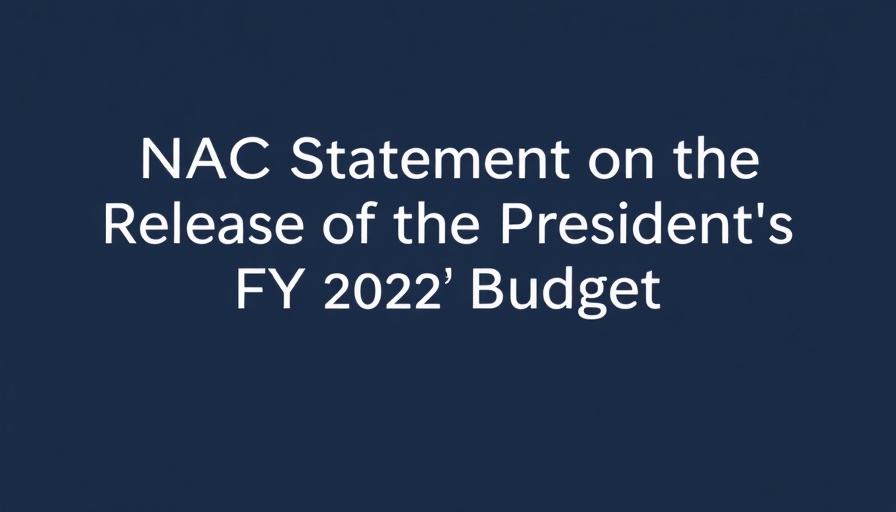
The Fight for Caregivers: NAC Responds to the President’s FY 2026 Budget
The National Alliance for Caregiving (NAC) has voiced a mixed response to President Trump’s FY 2026 budget, recognizing some positive advocacy results while expressing serious concerns about its implications for America’s over 53 million family caregivers. These individuals are pivotal to the welfare of aging parents, veterans, and those with disabilities, providing essential, unpaid support that saves the healthcare system billions.
Celebrating Advocacy Wins: A Step in the Right Direction
NAC acknowledges important victories due to extensive advocacy by family caregiving, aging, and disability supporters. Notably, the proposed budget maintains funding for critical Older Americans Act (OAA) programs under the Department of Health and Human Services. This decision avoids a detrimental fragmentation of services that could disrupt support for older adults and their caregivers. Keeping these programs unified is vital, ensuring coordinated care among various support systems.
Moreover, the budget protects essential funding for programs like the National Family Caregiver Support Program and Lifespan Respite Program. These initiatives have been instrumental in ensuring that family caregivers receive the support they need to care for their loved ones effectively. Despite these gains, NAC remains vigilant against looming threats, particularly the proposed budget cuts to the Long-Term Care Ombudsman Program, which plays a crucial role in advocating for vulnerable populations.
Concerns of Further Cuts: Warning Signs for Caregivers
While NAC appreciates the financial victories, it also emphasizes the need for caution. The budget reflects potential harmful cuts to vital workforce development programs that assist older adults and the community-based services that provide essential support to caregivers, such as housing and nutrition. If approved, these cuts could exacerbate the challenges faced by family caregivers, significantly increasing their burden as they navigate complex health and social service systems.
According to NAC, family caregivers contribute an estimated $600 billion in unpaid labor annually. Without appropriate support structures, the quality of care provided to those in need could decline and lead to increased costs within the healthcare system. These cuts could shift the financial burden further onto families who are already grappling with significant responsibilities.
Unpacking the Broader Impact: What This Means for Families
In addition to the financial aspects, the ongoing discussions surrounding Medicaid and Supplemental Nutrition Assistance Program (SNAP) cuts proposed in reconciliation legislation warrant attention. Such reductions disproportionately impact the most vulnerable populations, further stressing families and their caregivers. NAC urges Congress to build on the victories achieved through advocacy while rejecting harmful provisions that threaten the support systems upon which caregivers rely.
Looking Ahead: The Future of Family Caregiving
Historically, advocacy organizations have shown that sustained engagement with policymakers can lead to tangible results for family caregivers. These recent budgetary victories highlight the necessity for continued vigilance and advocacy in the future. As legislators reconsider budgetary allocations, they must prioritize investments that recognize and support the role of family caregivers. Such proactive measures could ensure that caregivers do not have to shoulder their responsibilities alone.
A Call To Action: Engaging in Advocacy Today
The fight for fair and adequate support for family caregivers is ongoing. As stakeholders in the healthcare and legislative sectors collaborate to create a more supportive environment, individuals can contribute by engaging in advocacy efforts. By raising awareness on the valuable contributions of caregivers and the challenges they face, we can influence policy decisions that prioritize and uplift this essential workforce.
The recent victories achieved through advocacy serve as a compelling reminder of the impact concerned citizens can make. However, vigilance is crucial as potential cuts loom on the horizon.
 Add Row
Add Row  Add
Add 




Write A Comment